|
| It is said that habit is a personal thing, but, as there tend to have a habit similar populations that are part of the trend will be different in the world and Japan.Habit that society tolerates is enhanced, it is because the selection is habit which do not qualify.That also means that it that he can fix the habit if you think that cultural differences affect the habit, that is, trying to fix.In this case, please learn how actions such Japanese ends up well whether is received in the world. |
 |
 |
|
[In Japan]In the matrix, where you must line up a long time, there are people who have a wait on one's hunkers.
[In the world]You will be seen in the country in Asia, Africa, and Australia, but the people of European countries, does not seem to squat even tired waiting time.There seems to be an image that there is no product that you have from the people of the country and you have that squat.
|
|
| |
 |
 |
|
[In Japan]When I point my things, Japanese are pointing their face the (nose).
[In the world]In countries such as France, it seems suspect "nose What 's the matter?" And to the other party and pointing at their face the (nose) as usual.In addition, it points at their face, does not seem to receive a very good impression.If you point to yourself abroad, let's pointed to the breast per your index finger or thumb if.
|
|
| |
 |
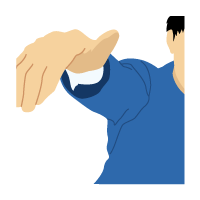 |
|
[In Japan]When calling people, Japanese people the act of "Koikoi" from top to bottom of the wrist.
[In the world]This behavior carried out by the Japanese, it seems would have been taken to mean! "Go away" in countries such as France.
When you call a person abroad, let's move to the front four fingers with the palms facing upward.
|
|
| |
 |
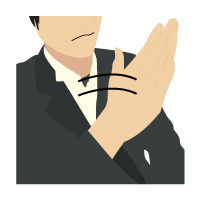 |
|
[In Japan]When "different" and "thank you", the Japanese will the motion of swinging from side to side in front of the face hand.
[In the world]Or that an act of the term "stinking" is misunderstanding "interested," he said in some areas also seems to countries such as France.
|
|
| |
 |
 |
|
[In Japan]When you take photos, Japanese people the peace sign well.
[In the world]In European countries, seems to be the old image is peace sign, does not seem much to the peace sign actually.So, from the people of Europe, there seems to be a strange feeling pretty pictures young Japanese women have a peace sign in a small group.
|
|
| |
 |
 |
|
[In Japan]When you convey thanks, when the apology, many people bow and during the telephone, in various situations in Japan.
[In the world]Bow is a habit that can be seen well in Asian countries, but says people of European countries and see, how have the bow of Japanese is very strange.In the train or restaurant, bow is carried out even on the phone can not see the figure of the other party, how to use it is also a variety, seems to sight only in Japan by the time and.In addition, you say that it's the feature Nanoha in the bow of the Japanese, dropped to below the line of sight together when you lower your head, you do not see the eyes of the opponent.As for the bow of the Japanese bow, usually Rei, and salute, as the web site to introduce a formal manners is also in English, It is said that is known worldwide. Also on the site, has been pushed a sense and that "Unlike the greeting of Europe and the United States dropped down perspective, we are not stare into the other person."
|
|
| |
 |
 |
|
[In Japan]Against the head of his unsuspecting "hold out" by, bowing is a greeting in Japan, is the act of representing the will of the respect to the other party.Head is the weakest part in the body, sometimes referred to as "hold out", is that it is the act that shows their trust in the other party without looking at the eyes of the opponent.
[In the world]In the West, handshake firm is the basis of greeting. It is said that this origin, shows that he will not have a weapon in hand, and is to prove that there is no hostility to each other by looking at the eyes of the opponent.The differences between this greeting, there seems to be idea that the difference in the expression of trust in the other party.
|
|
| |
 |
 |
|
[In Japan]Japanese has nodded uh-huh Move the head up and down when you are talking to people.
[In the world]From the perspective of the people of Europe and the United States, the head is not moving up and down every time you speak, it seems action that looks like a chicken.Overseas, I call chicken and communication behavior of the Japanese.
|
|
| |
 |
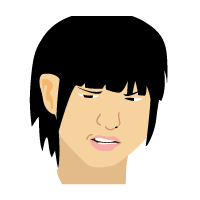 |
|
[In Japan]Tend to be when there was such at the time it was frustrating and I think when you frustrated and not go your way, be uncomfortable for some often tut-tutting.Might occur when the tut-tut, resulting in discomfort to others, it does not could worsen the relationship with the surrounding objects and lead to a lot of tut-tutting.
[In the world]Meaning of tut-tut can vary greatly from culture to culture and country.For example, when you praise and excitement a little, when you have compassion, it is used as an alternative to the back-channel feedback that is used for conversation in India in Syria in Korea and China.Thus, in some countries the difference, not captured by the bad means tut-tut and Japan.
|
|
| |
 |
 |
|
[In Japan] It is your manners and bad eating noisily and Kuchakucha at the time of the meal.Moral consciousness is so high is Japanese, manners during the meal will be very concerned about.
[In the world]It is a breach of manners as well as Japan in the United States and Europe.But eating noisily and Kuchakucha in Korea and China seems to proof that you are eating delicious.
|
|
| |
 |
 |
|
[In Japan]You tend to would drink and make a noise when you eat hot stuff.
[In the world]In the case of hot soup, etc. came out, you tend to eat to cool a little and without eating any time soon Europeans and Americans.On the back of manners that (do not eat noisily) not sipped the hot soup, or physical cause that it is not eaten is hot stuff for people who can not eat hot food is large, the habit that it is not sipped When you eat soup I'm involved large.
|
|
| |
 |
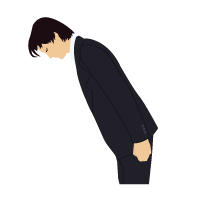 |
|
[In Japan] The Japanese use the word "sorry" when it represents the feeling and ask each apology, thanks. I think any more, people are using the "I'm sorry" reflexively is large.
[In the world]For that you apologize, this means you are to admit (sin) of their own, would have been a damages claim of substantial, is not likely very few people apologize Even bumped the Europeans and Americans. It is a word that is used in much become favorite phrase in Japan, but it is what Europe and America, favorite phrase also varies by cultural differences still.
("I'm sorry Law" enacted in the United States ※, towards the Western people I seem to circle Xie well as compared to the people of Asian countries in recent years.)
|
|
| |
 |
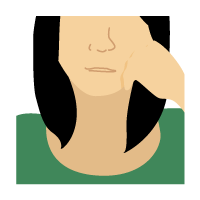 |
|
[In Japan]It is the action to take when this is to check whether there is not a dream that I was happy. It may pinch the cheek even when you wake up to the drowsiness.
[In the world]In the very Western, it makes sense that they are to fool the opponent. In Italy, I will perform the operation pinch the cheek in front of the delicious lovely lady and cuisine.
|
|
| |
|





















